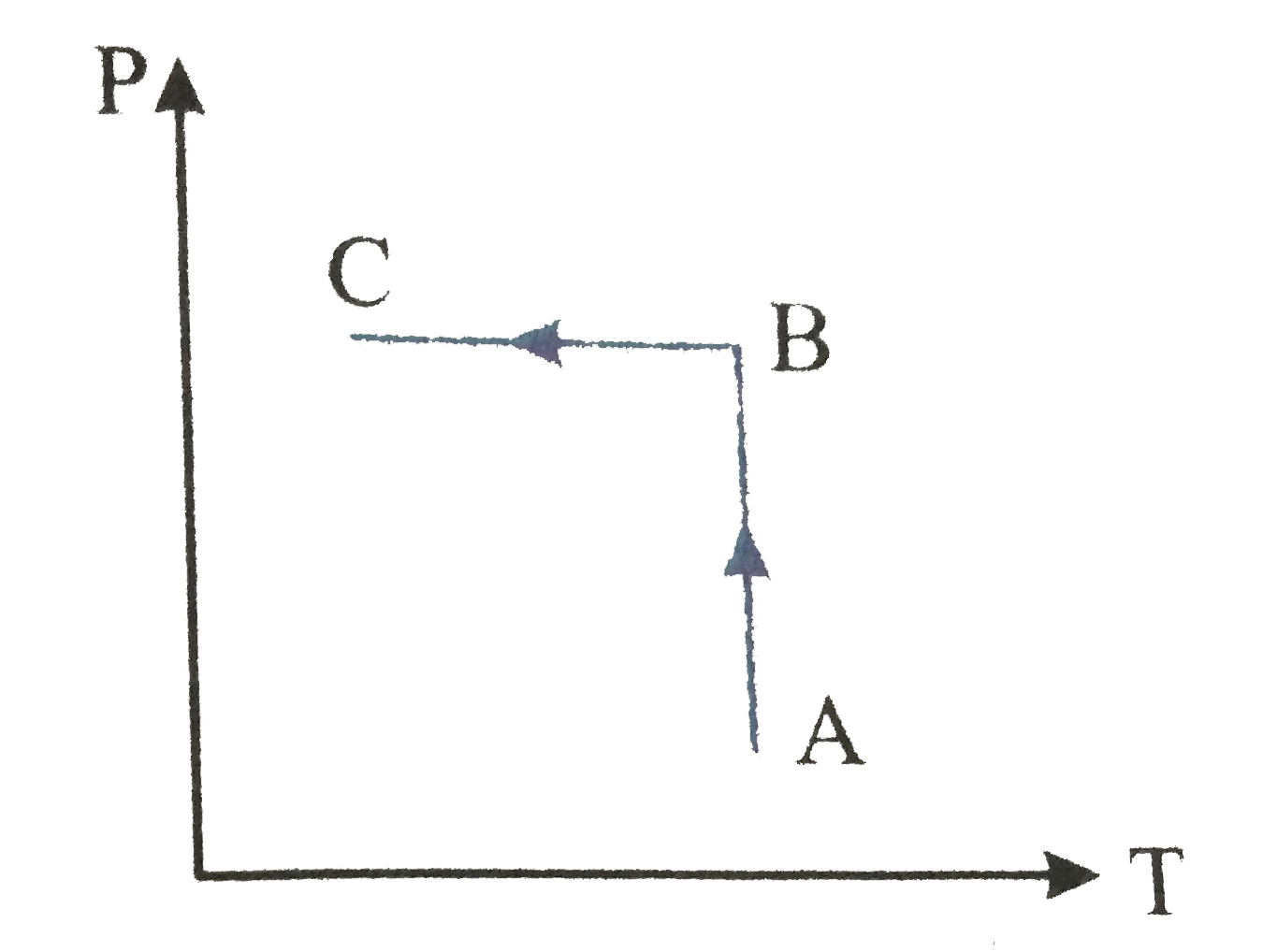A gas is taken through a cyclic process ABCA as shown in, if 2.4 cal of heat is given in the process, what is the value of J ?
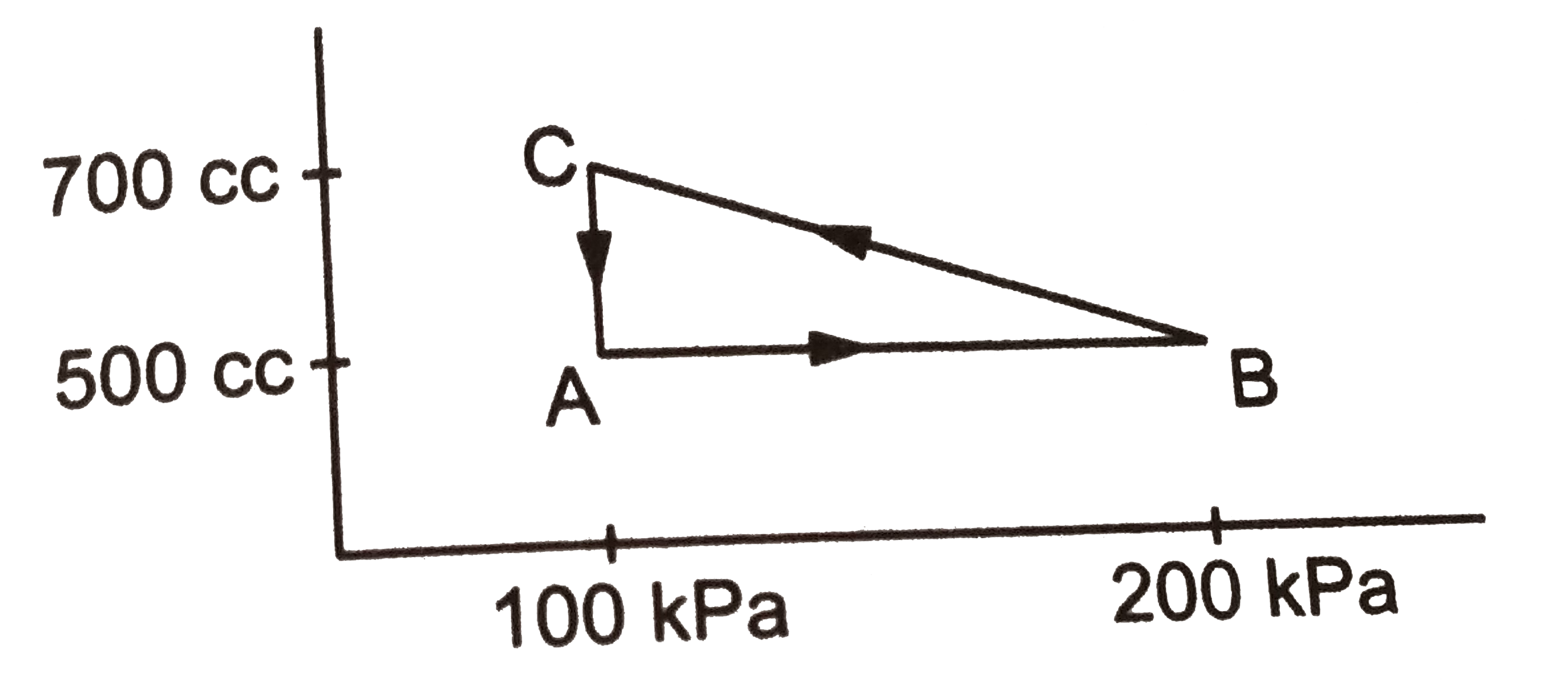
The correct Answer is:A, C, D
δQ=2.4cal
δW=AB+WBC+WAC
=0+12×(100+200)×103×200xx106(-6)-100xx10^3xx200xx10^(-6)<br>(1)/(2)xx300xx10^3xx200xx10^(-6)-20<br> = 30J = -20J = 10J<br>Delta U = 0(in a cycle process)<br>DeltaQ = Delta U+DeltaW<br>rArr 2.4J = (10)/2.4) = (100)/(24) = (25)/(6) = 4.17J/cal
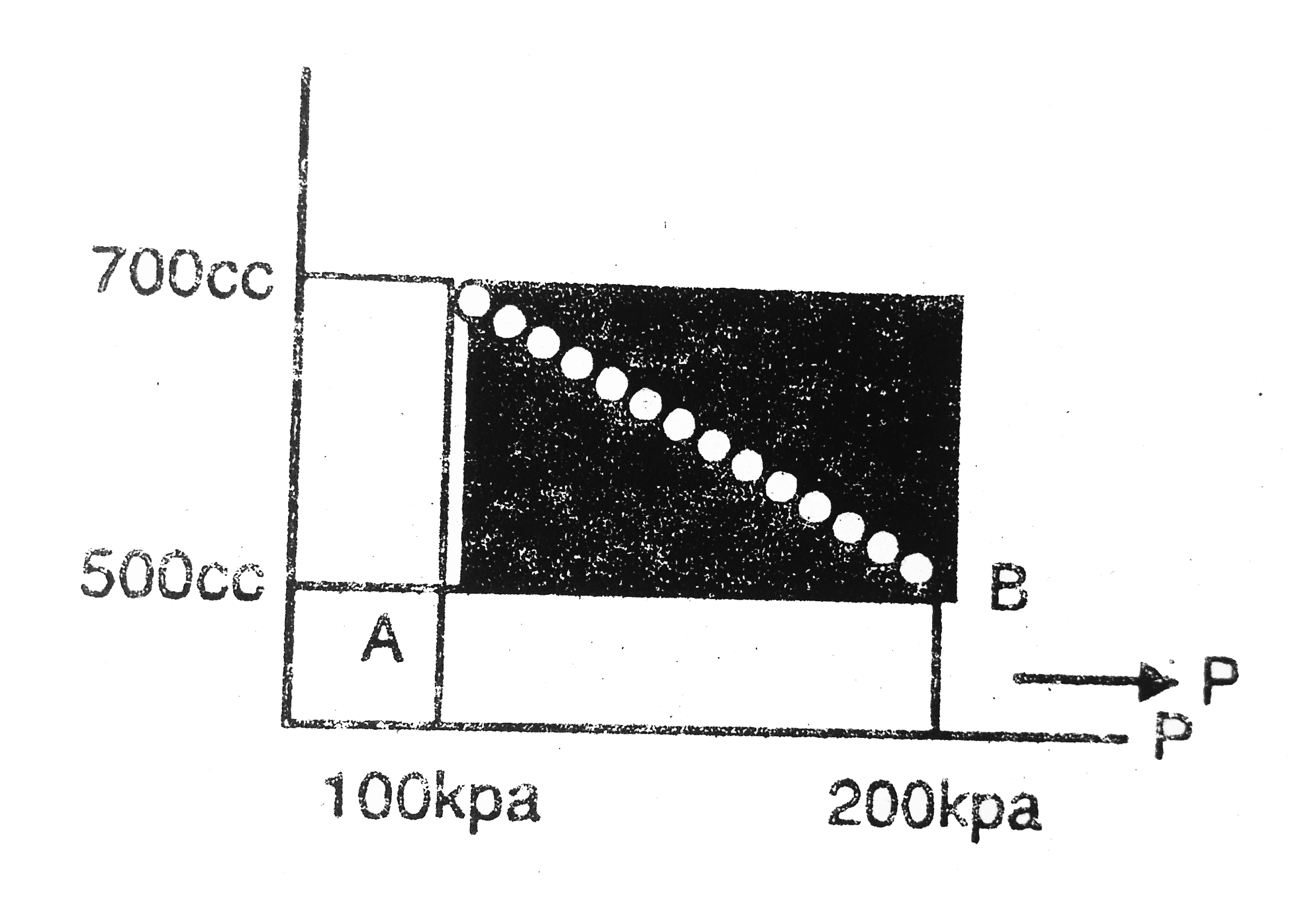
Topper's Solved these Questions
Similar Questions
Knowledge Check
A cyclic process ABCA is shown in the V−T diagram process on the P−V
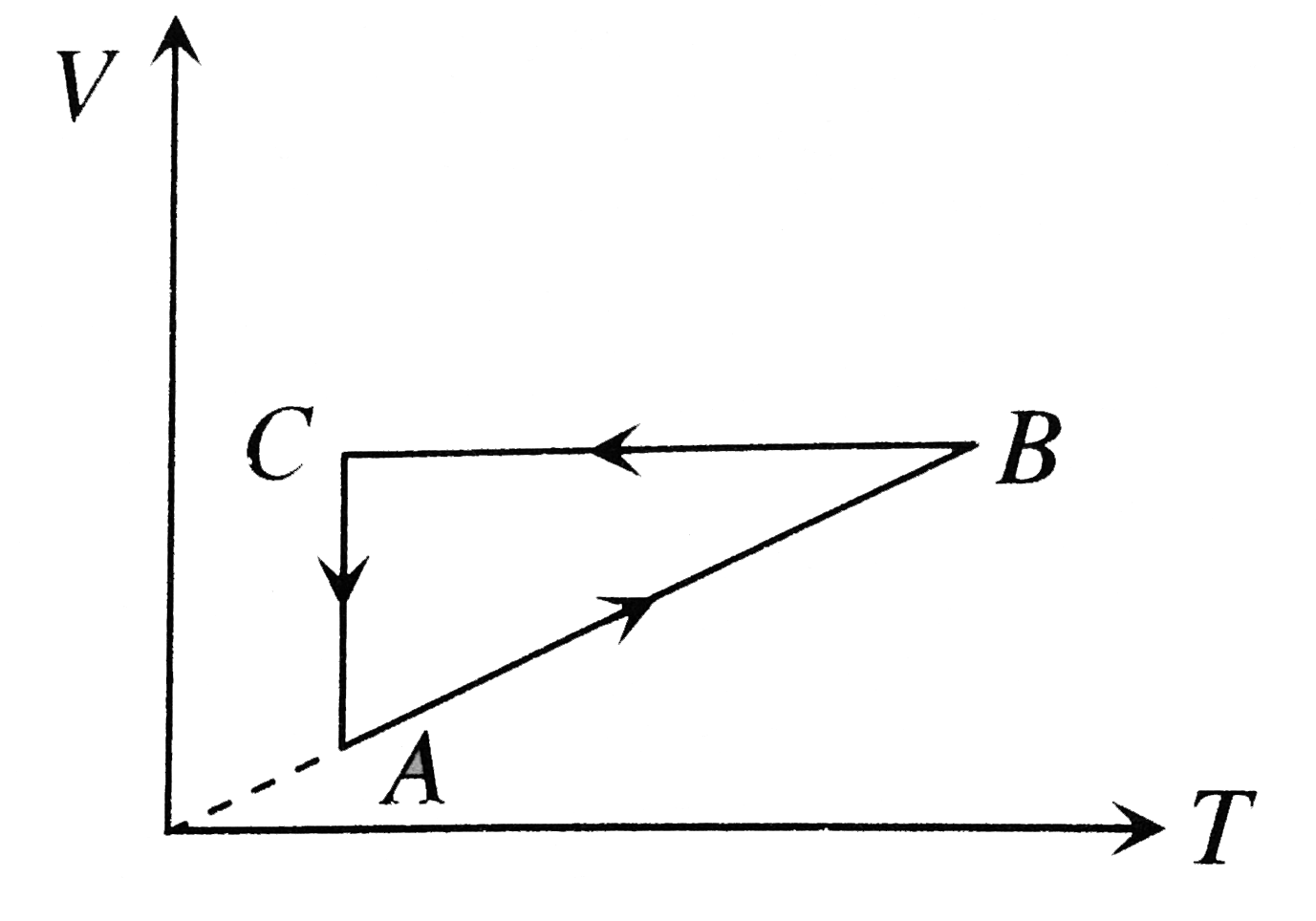 A
A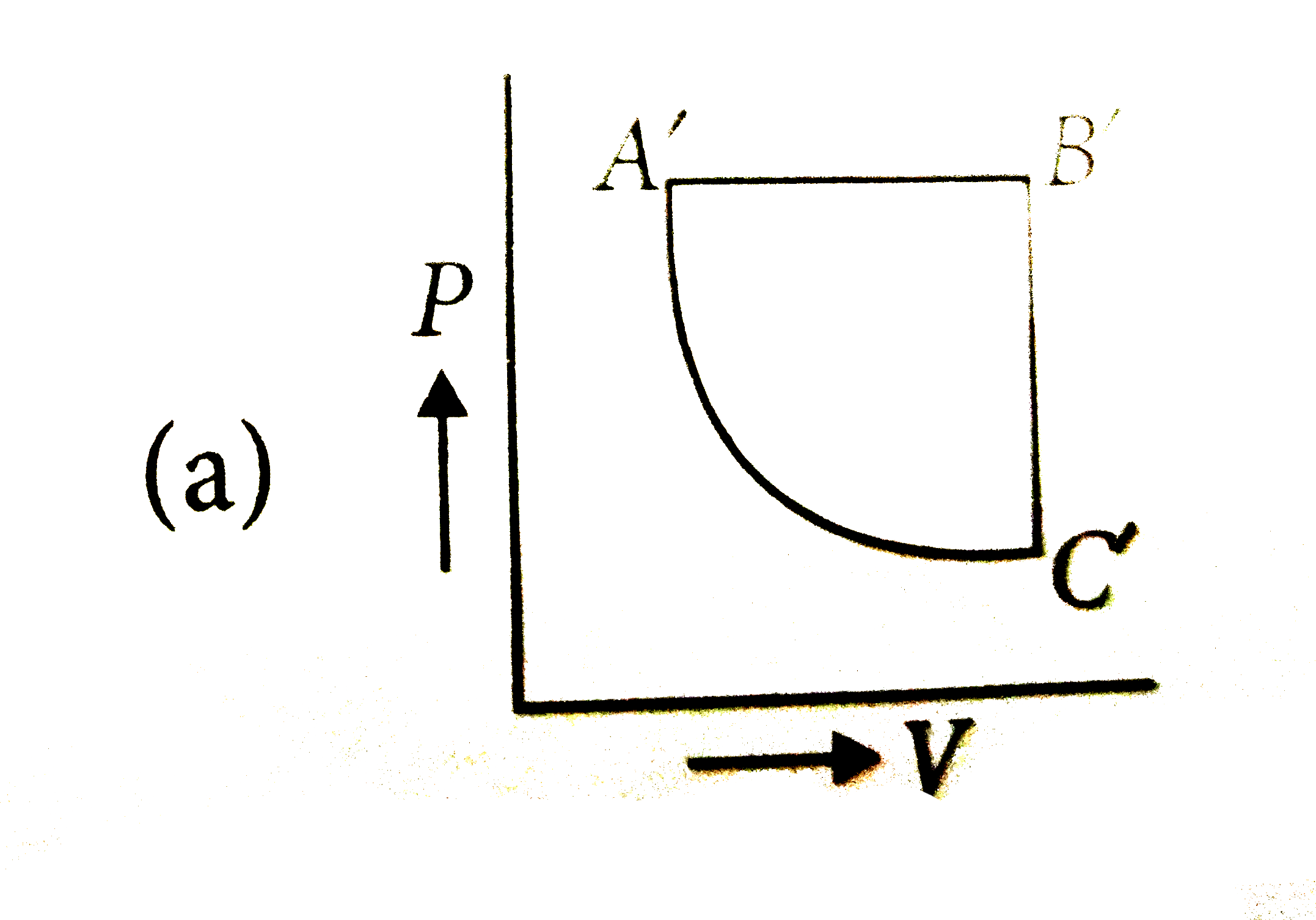 B
B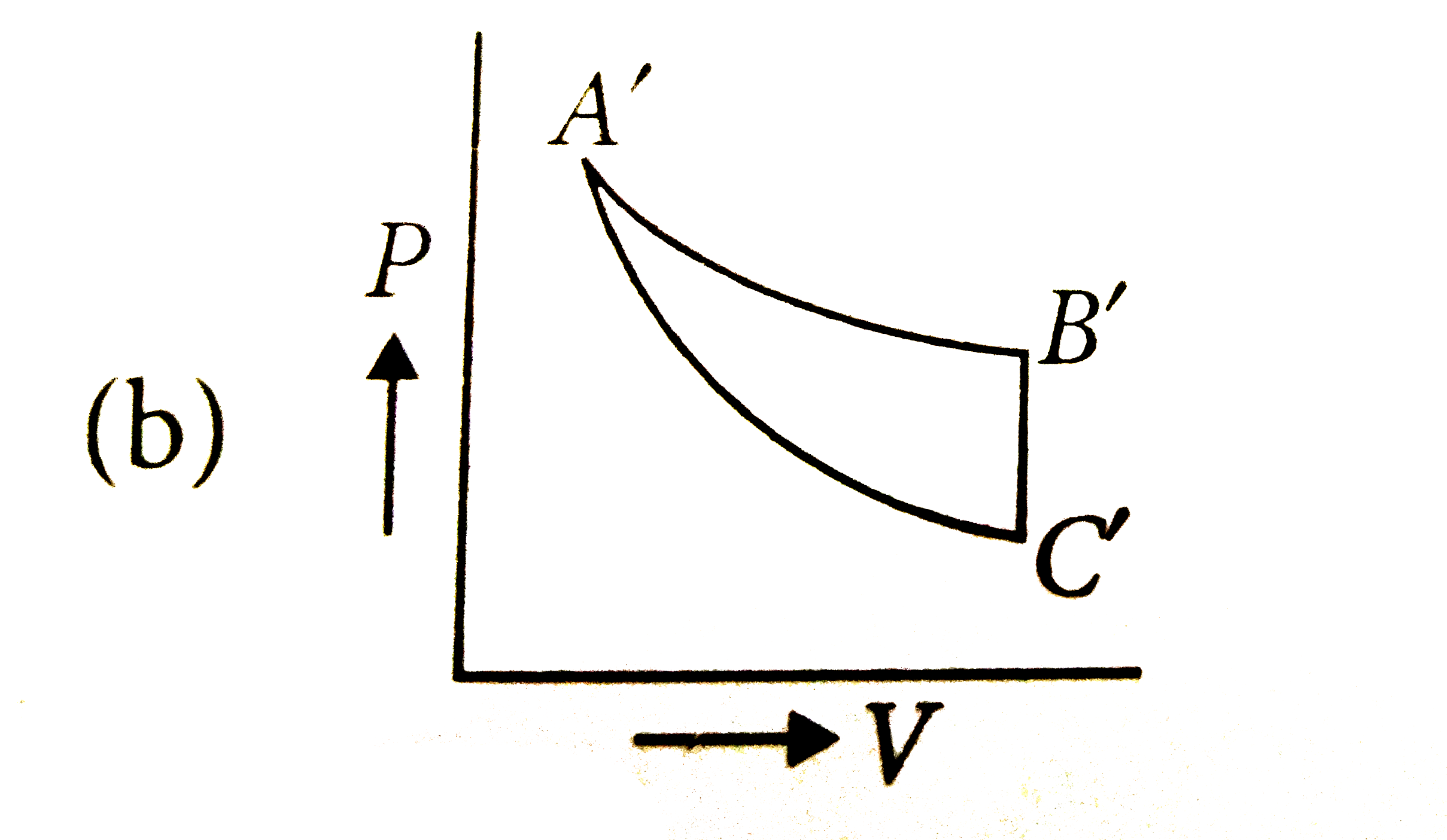 C
C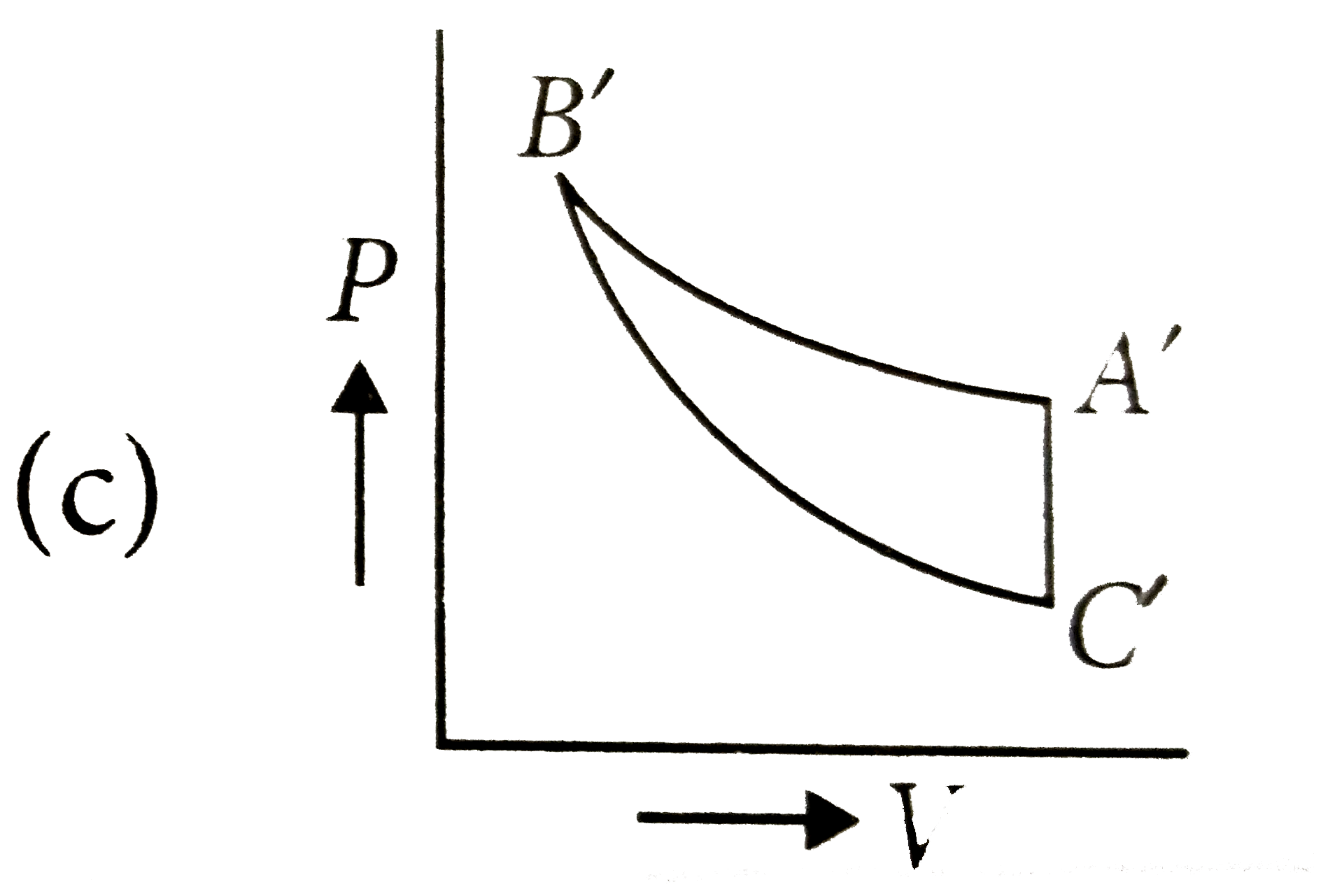 D
D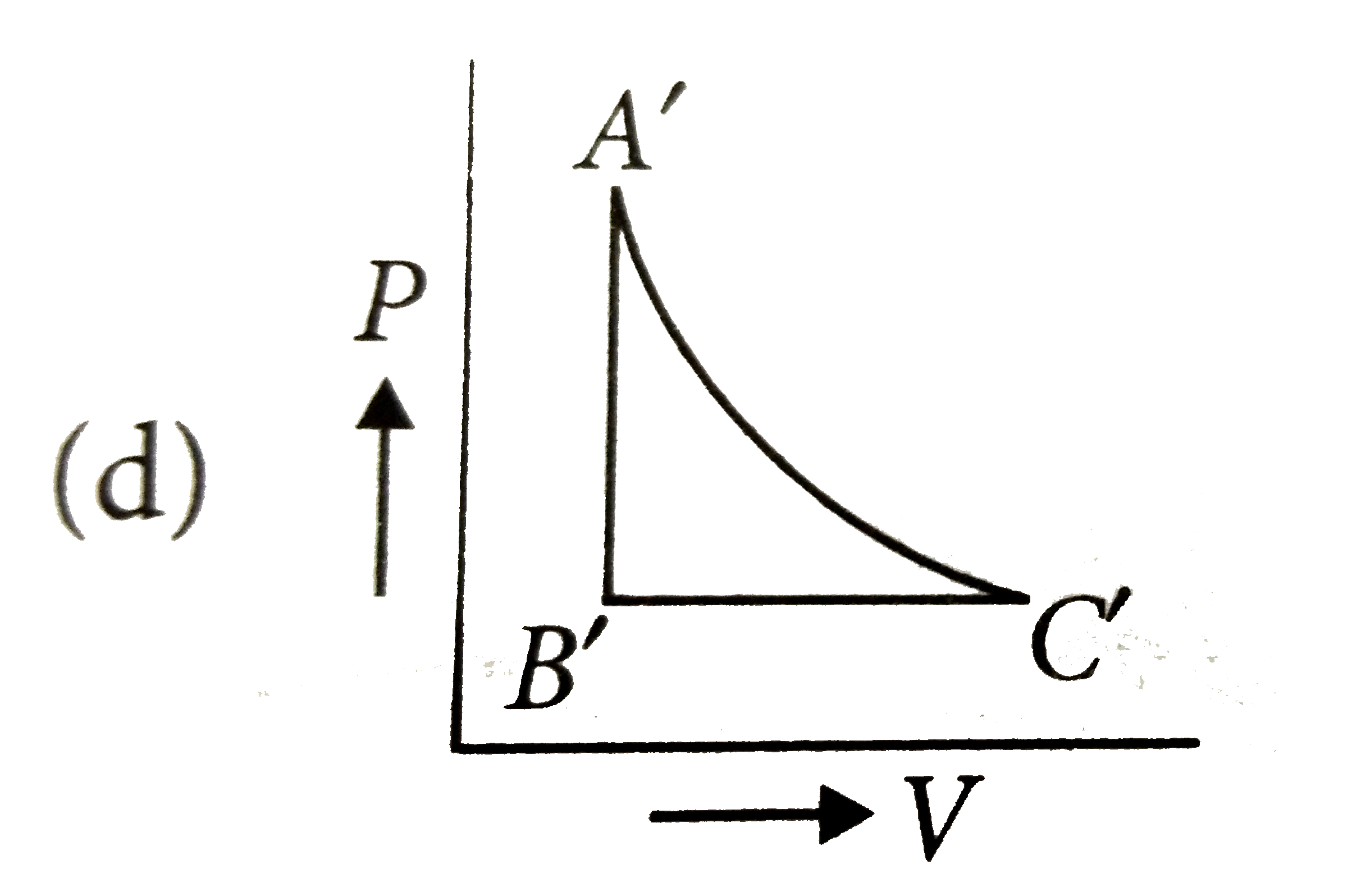

Two moles of an ideal monoatomic gas is taken through a cyclic process as shown in the P-T diagram. In the process BC, PT−2= constant. Then the ratio of heat absorbed and heat released by the gas during the process AB and process BC respectively is.
View SolutionTwo moles of an ideal monoatomic gas is taken through a cycle ABCA as shown in the p - T diagram. During the process AB, the pressure and temperature of the gas vary such that pT = constant. If T1=300K and the amount of heat released by the gas during the process AB is Q=−xR, then the value of x is
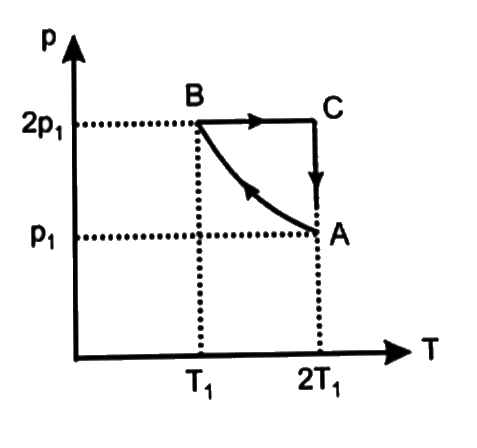
View Solution4 millimoles of an ideal monoatomic gas is taken through a cyclic process ABCDA, is shown in the figure, AB and CD are two isothermal curves having temperature 300 K and 600 K respectively. The total work done by the gas during the cyclic process is xRloge25. find the value of x
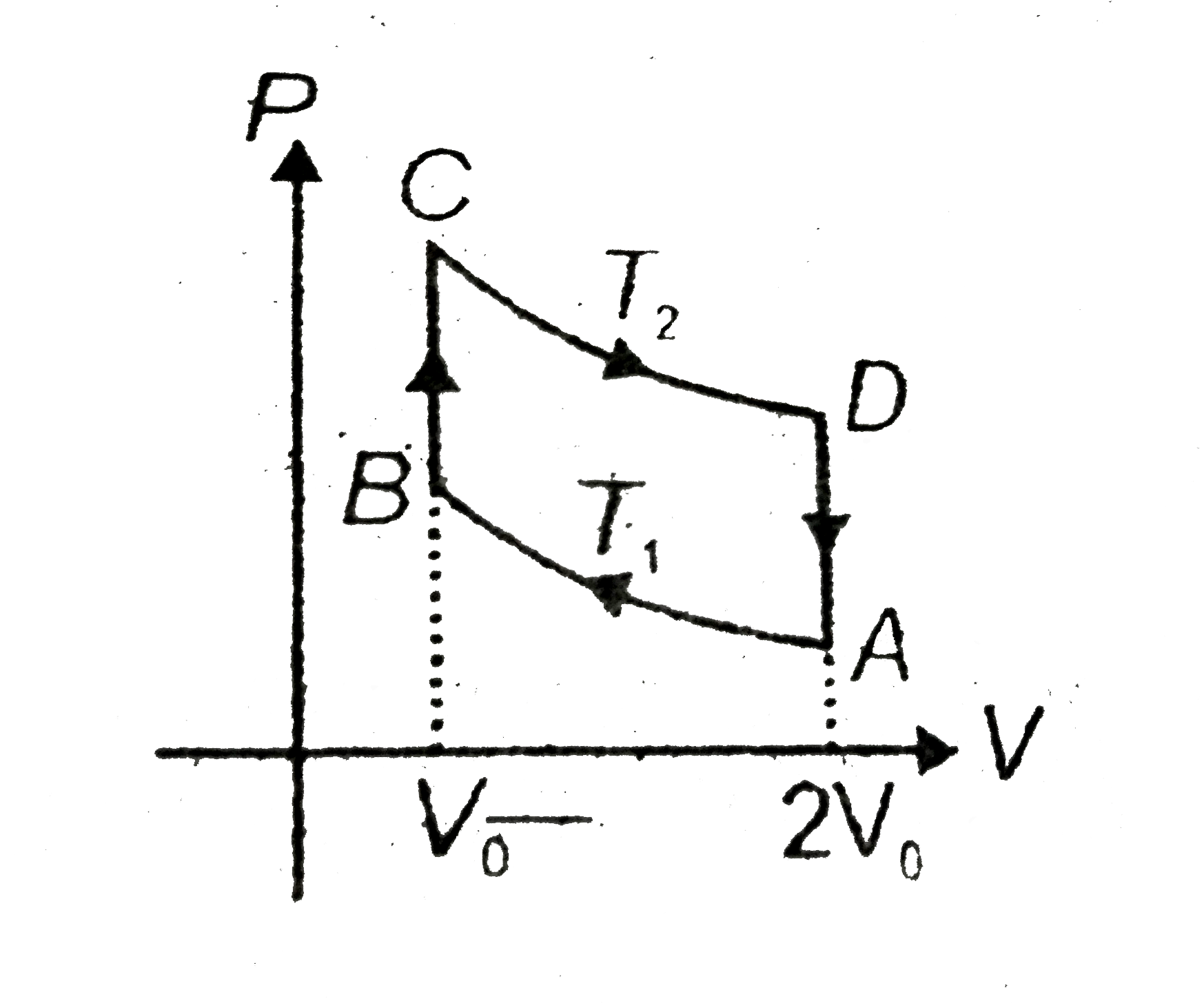 .
.
View SolutionA sample of 1.0 mol of a monoatomic ideal gas is taken through a cyclic process of expansion and compression as shown in figure. What will be the value of ΔH for the cycle as a whole ?
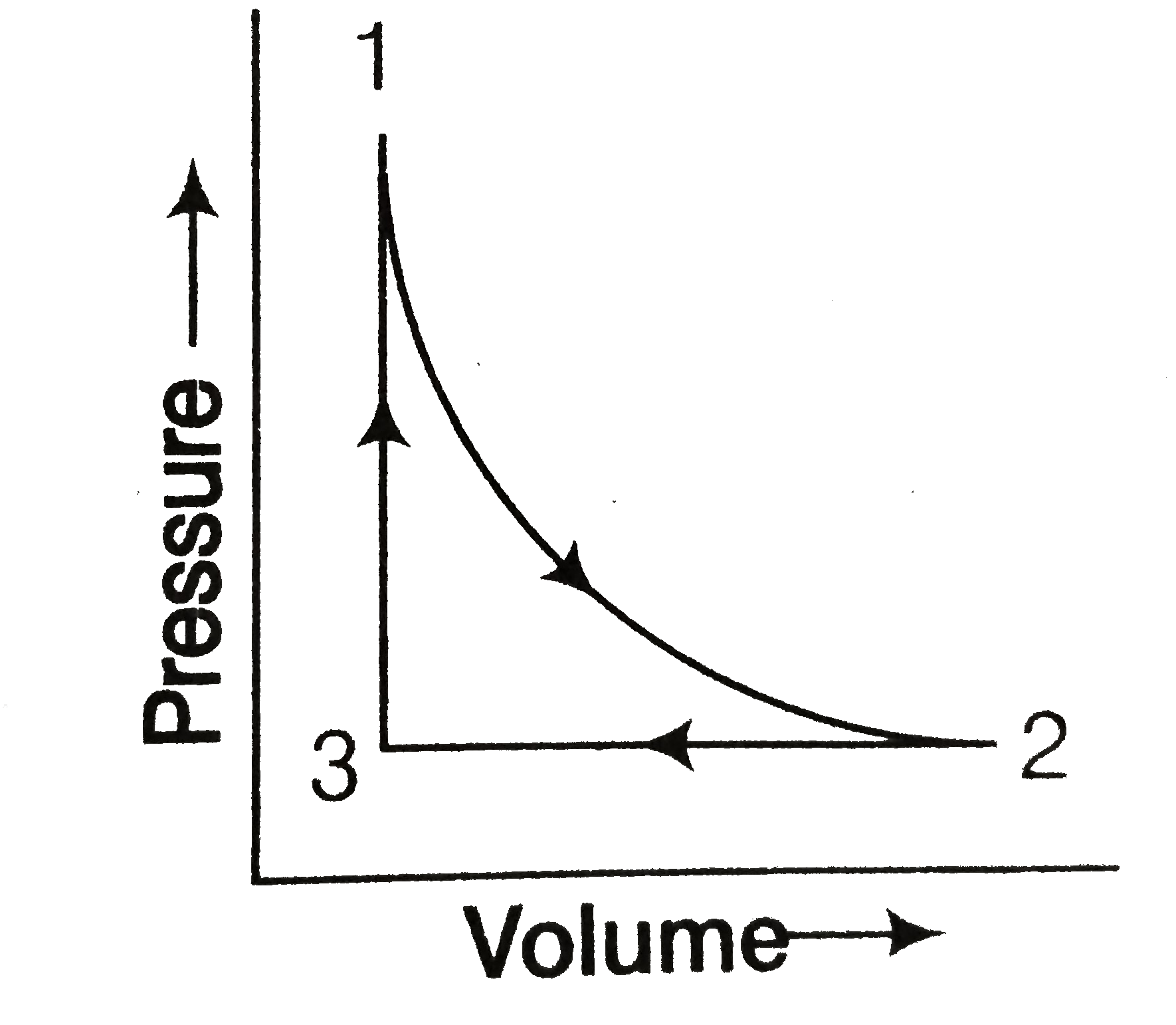
View SolutionA fixed mass of oxygen gas performs a cyclic process ABCA as shown. Find the efficiency of the process.
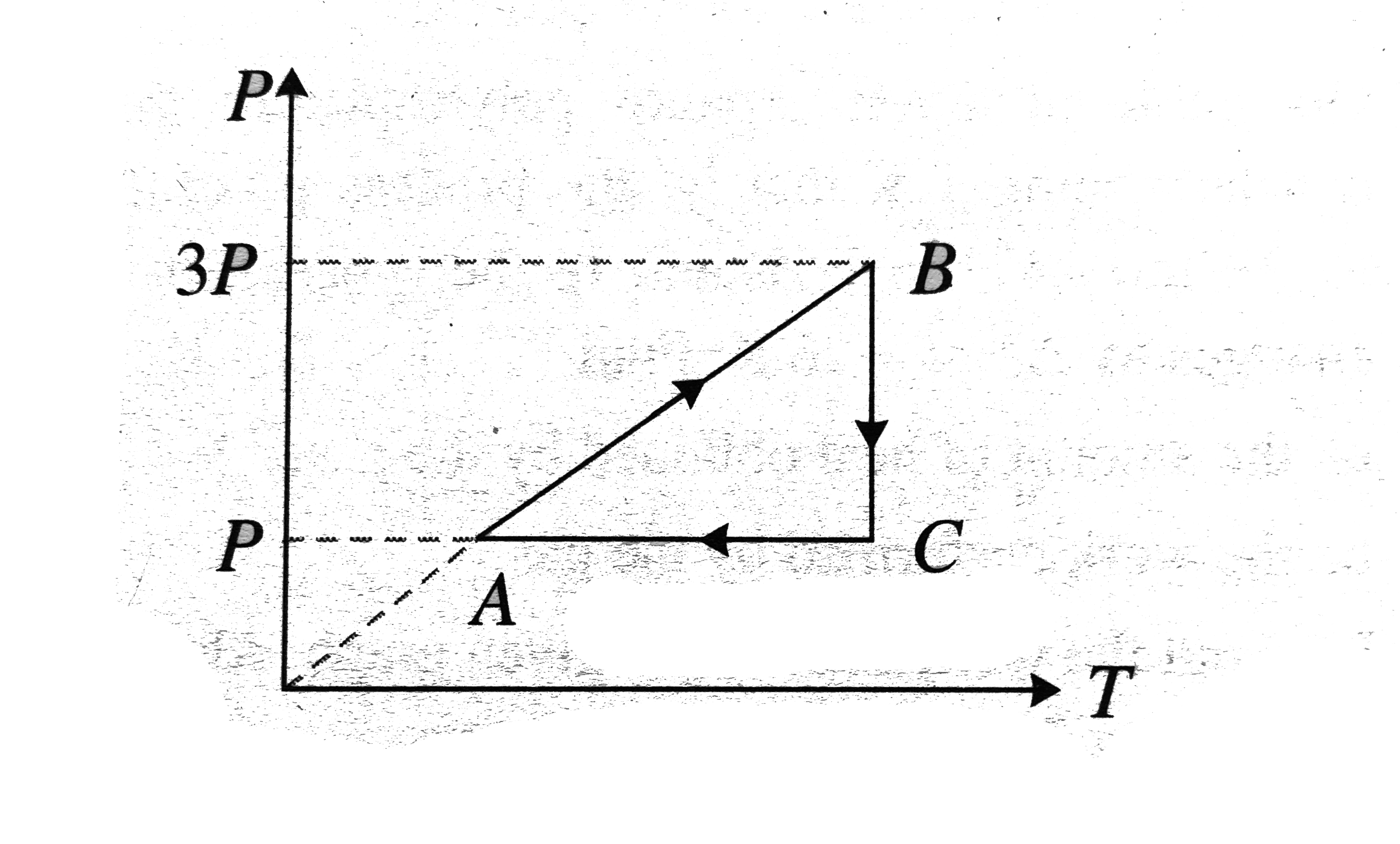
View SolutionA fixed mass of oxygen gas performs a cyclic process ABCA as shown. Find the efficiency of the process.

View SolutionA gas is taken along the path AB as shown in fig, if 70 cal of heat is extracted from the gas in the process, calculate the change in the internal energy of the system.
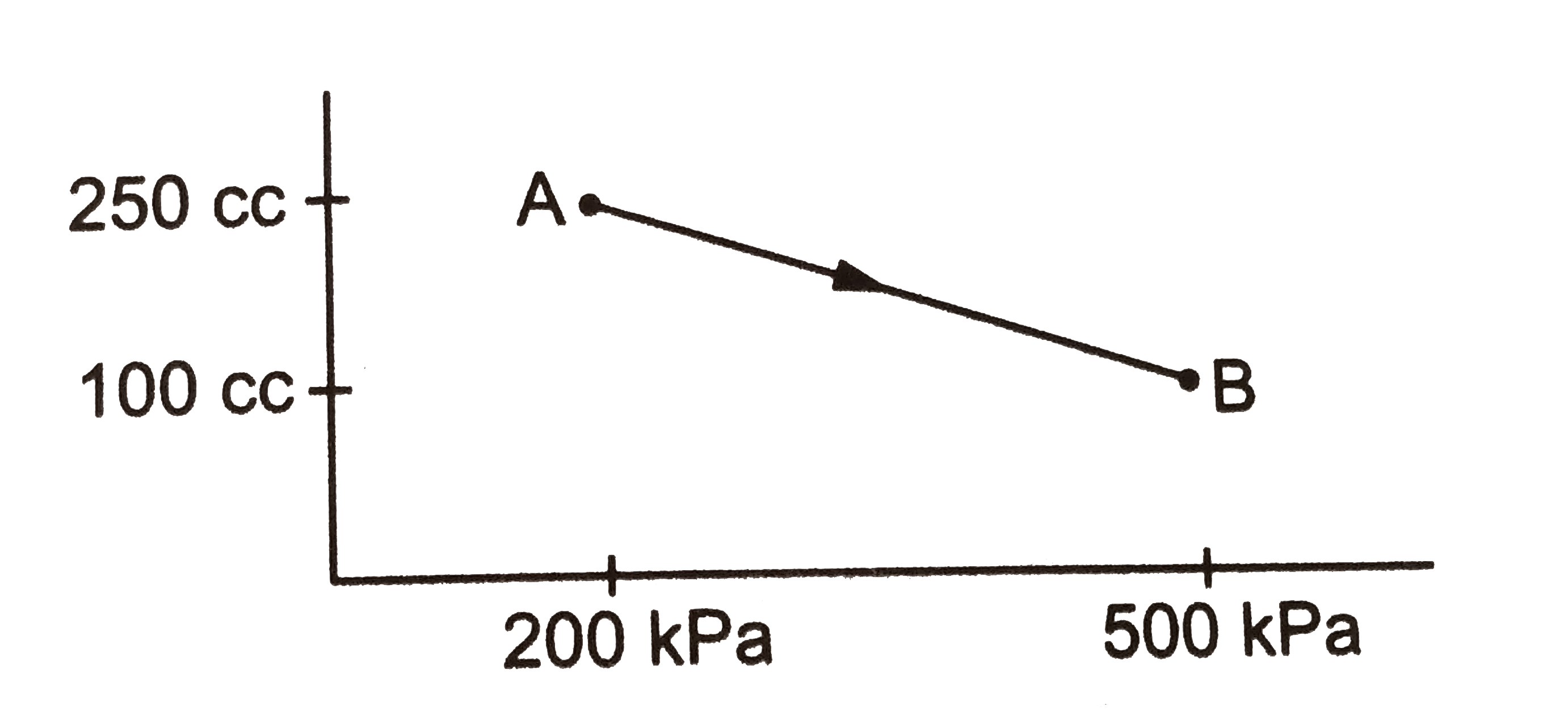
View Solution

